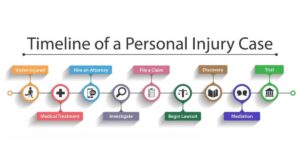Email: [email protected]


Personal injury law, also known as tort law, is a complex and nuanced legal field that protects individuals who have suffered physical, emotional, or financial harm due to the negligence, recklessness, or intentional wrongdoing of others, including catastrophic injuries, traumatic brain injuries, spinal cord injuries, wrongful death, and other severe injuries.
This legal field allows individuals to file claims against those responsible for their injuries, seeking compensation for damages such as medical expenses, lost wages, pain and suffering, emotional distress, diminished quality of life, loss of consortium, and other related costs, including rehabilitation expenses, property damage, and punitive damages.
Personal injury lawyers specialize in representing clients in various types of cases, including car accidents, truck accidents, motorcycle accidents, slip and fall accidents, medical malpractice, product liability, and workplace accidents, ensuring that victims receive fair compensation and justice.

In this guide, we will delve into the fundamentals of personal injury law, including key concepts, types of cases, and the legal process, to help you navigate the often daunting world of personal injury claims.
Personal injury law is a branch of civil law that allows individuals to seek compensation for injuries or damages caused by another person’s or entity’s reckless or negligent behavior. This can include:
Personal injury cases can arise from various situations, including:
Click on the next page button to continue enjoying the article!












To provide the best experiences, we and our partners use technologies like cookies to store and/or access device information. Consenting to these technologies will allow us and our partners to process personal data such as browsing behavior or unique IDs on this site and show (non-) personalized ads. Not consenting or withdrawing consent, may adversely affect certain features and functions.
Click below to consent to the above or make granular choices. Your choices will be applied to this site only. You can change your settings at any time, including withdrawing your consent, by using the toggles on the Cookie Policy, or by clicking on the manage consent button at the bottom of the screen.
